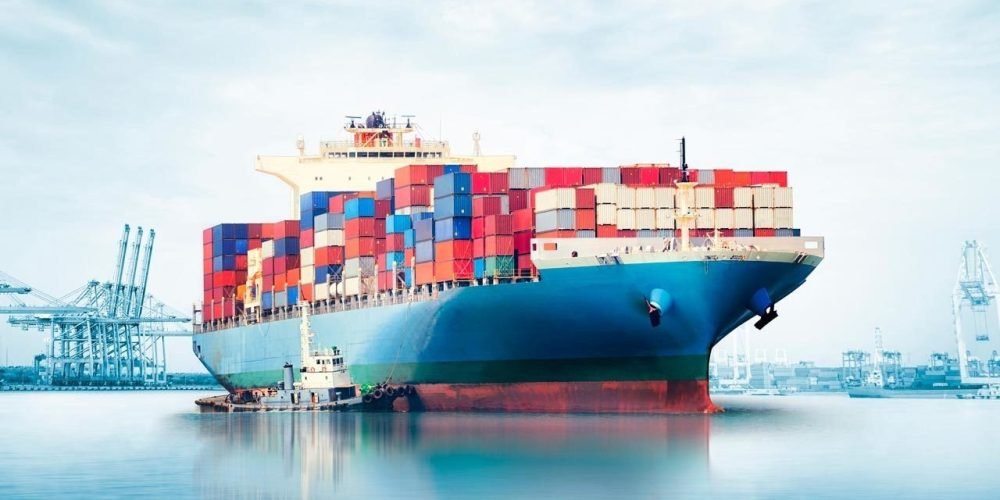Why Millions Of Tons Of imports waiting at Iran’s Ports
Recent update from Iran say that 1.3 million metric tons of “essential goods” have arrived in Iranian waters but cannot be unloaded because importers have not been able to obtain hard currency from the goverment to pay foreign vendors in full.
When Iran’s currency began to depreciate at the beginning of 2017, the government decided to supply cheap dollars to companies that would import food, medicine and other essential goods. The rest of importers had to buy dollars at higher rates. In short, the government began subsidizing essential imports to help citizens survive in the inflationary environment.
Importers of essential goods receive each US dollar from the government for 42,000 rials, while the value of the US currency is 250,000 rials on the open exchange market.
However, importers often must wait a long time to receive the cheap dollars. Due to US sanctions on Iran’s oil exports the government simply does not have enough dollars to distribute.
The Iranian Student News Agency (ISNA) reported that besides the 1.3 million tons of goods on ships waiting near Iranian ports, another 5.5 million tons of essential imports are also backed up at ports, again mostly due to lack of foreign currency.
The issue of key imports being stranded on ships and at ports has been going on for months, with President Hassan Rouhani’s government, the Central Bank of Iran and other officials holding frequent meetings and issuing proclamations about having solved the problem. But the shortage of essential goods has never been resolved and prices keep rising, even though the government is subsidizing these imports.
When goods reach Iranian customs, importers must produce paperwork issued by sellers in order to clear the goods through customs. But when importers do not have the dollars to wire to sellers as final payment, the goods get stuck either on cargo ships or at warehouses at the ports.
In some cases, importers use their own credit line to guarantee payment and they receive the paperwork from sellers, but because they are afraid the government might never release the dollars at the preferred rate, they keep the goods waiting at the customs. ISNA says that in some cases even government entities wait a long time to receive dollars and even when they have the foreign currency to pay for imports, they wait until the government releases the funds before committing to clearing the goods through customs.
The question might arise as to why importers simply do not buy the essential goods with expensive, free market rate dollars. The main answer is because prices are controlled by the government and importers cannot pay six times more for goods and sell it six times higher.
Non-essential goods, such as shoes or materials for producing consumer goods is a different matter. In that case the government has a second preferred dollar rate for importers, which is somewhere between the 42,000 rial and the free-market dollar rate.
There have been a few scandals and a lot of accusations that well-connected businesses obtain the cheap dollars from the government and never import essential goods. They either import cars or luxury items and allegedly share the profits with officials.
Disruption In Food Production – Iran
Ingredients are rotting and production being disrupted in agro-food businesses due to unscheduled electricity cuts, Mohsen Naghashi, secretary of the Food Industries Federation told the Iranian Labour news portals.
“The disorder and chaotic situation may cause more food production factories to shut down,” Naghashi said.
He urged both parliament and the security forces to investigate the power cuts and resulting interruptions in water supplies. Naghashi argued that the law required that industrial and agricultural enterprises be given priority in supplies of power, gas, and communications.
Power outages, often not announced in advance, hit Tehran, Mashhad, and Tabriz in late December. In January, Naghashi warned that consumers would soon face shortages and higher prices due to the breaks in food production.
Poultry farmers have reported lower output of white meat and eggs. Some farmers have reported damage to pumps used for irrigation of crops including corn, animal fodder, rice, and wheat.
Many trout farmers have reported fish dying due to a lack of oxygenation of water in ponds. An official of the Fish Farming Industries Union, Arash Nabizadeh said in May that 90 percent of the fish had perished in some farms, with some farmers unable to afford emergency generators as the price quickly quadrupled when outages began.
A slump in fish farming could increase unemployment. Trout and rainbow trout farming have been among the fastest-growing food industries in Iran.
According to World Food Organization’s Statistical Yearbook 2020, Iran harvested around 400,000 tons of farmed fish in 2018.
Electricity cuts since January have resulted from growing consumption, a drop in generation due to drought affecting hydro-electric power, wastage in the grid and rising illegal cryptocurrency mining.
In May the government banned all cryptocurrency mining, including licensed operations, for four months.
Iran has for many years been a significant exporter of electricity, including to Iraq, Turkey, Afghanistan, and Pakistan. Since 2004, Iran has exported 65 billion kilowatt(link is external) hours of electricity to Iraq worth $6.2 billion, of which $1 remains unpaid apparently due to Iraqi fear of United States sanctions. Iran’s electricity exports were reported ended in late June due to domestic shortages.
President Hassan Rouhani apologized Tuesday to Iranians for the outages and urged patience. Rouhani said while the ministry of energy was not to blame, it should explain the situation to the people.
Rouhani also said electricity production had grown by 2,000 megawatts per year during his eight years of presidency, 300 megawatts more than the average growth than under previous governments. He suggested that a change in working hours in industry could help.
The power cuts have led to protests in some cities and towns in the past few days. Officials have also warned the situation may become more challenging in coming weeks due to higher summer temperatures.
“There are people in the world so hungry, that God cannot appear to them except in the form of bread.”!
We must work towards the eradication of global hunger crisis, malnutrition amongst children.


